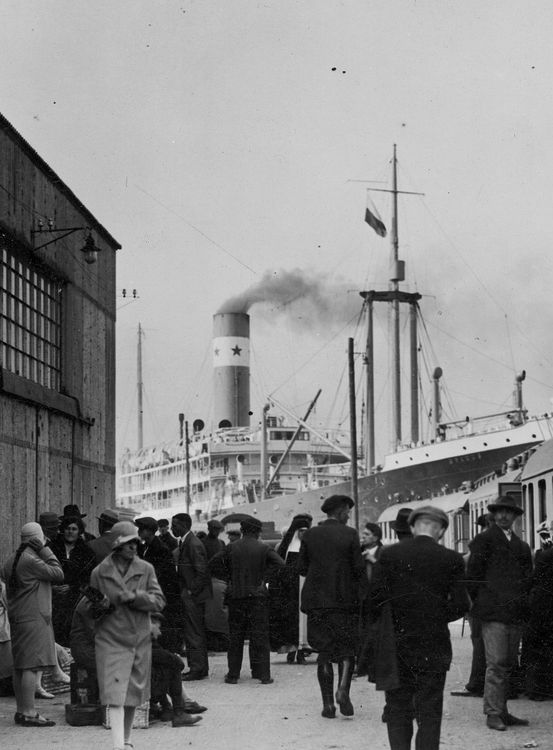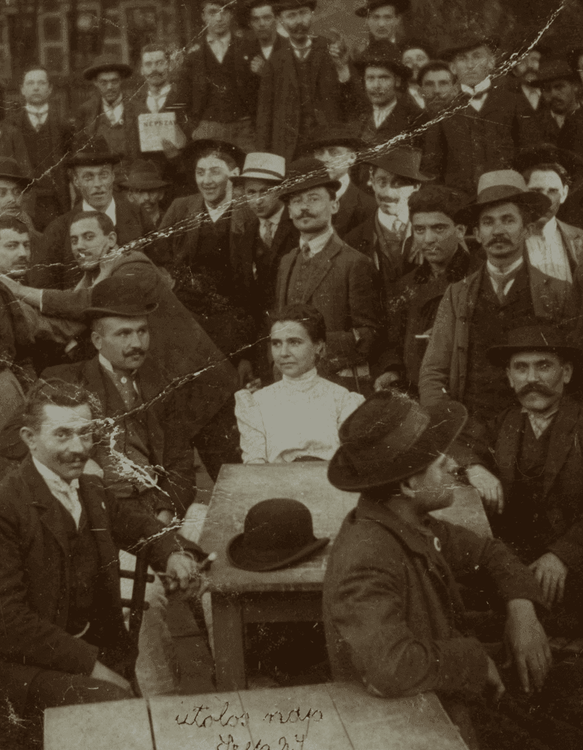Wanda Ładzina
Wanda Władysława Ładzina (1880–1966) was born in Warsaw into a family of patriotic tradition. She studied art in Warsaw and Paris, later completing additional training as a nurse. Her activism, rooted in Catholic social thought, was dedicated to improving conditions of working women, all the while promoting and supporting religious and national values. By 1906, Ładzina moved to Łódź, where, confronted with the hardships of women employed in the local textile industry, she started participating in various charities and organized courses for workers.
During World War I, she served in France with the French Red Cross, working in military hospitals and gaining the rank of captain in the sanitary service. Upon her return to Poland in 1918, Wanda Ładzina co-founded the National Organization of Women (NOK). This Catholic association sought to expand women’s participation in civic and political life. As leader of the Łódź provincial board and a member of the national council, Ładzina helped the NOK become one of the largest women’s organizations of the Second Polish Republic. Contemporary socialist and secular women activists criticized its emphasis on traditional roles and religion as the basis of women’s civic engagement.

Wanda Ładzina (Source: NAC)
Ładzina entered the Polish parliament (Sejm) in 1922 as a deputy for the Popular National Union, the main parliamentary party of the Polish nationalist movement known as National Democracy. Within parliament she joined the Labour Protection, Social Welfare and Invalidity committees. In her parliamentary work, Wanda Ładzina addressed different aspects of women’s wage labour. She campaigned for the recognition of domestic service as regular employment, pressing for legal safeguards for domestic workers who often lacked any formal protection. Preparing the landmark 1924 law regulating labour of women and minors, Wanda Ładzina worked together with Zofia Praussowa of the Polish Socialist Party and Roza Meltzer (Melcer) of the Jewish parliamentary club. In her speeches, Ładzina presented the law as a measure to “save the family”, signalling her belief that protecting women workers strengthened families and society as a whole. Dedicated to her philanthropic ideals, Ładzina donated her parliamentary salary to a charitable organization that operated a nursery in Łódź.

Fair of the National Organization of Women, 1925 (Source: NAC)
The NOK remained central to Wanda Ładzina after leaving parliament in 1927. She also travelled across Poland and Western Europe, giving numerous talks on social and religious questions. France remained an important centre of her interests, and she sought to build networks between Polish and French Catholic women’s organizations.
Supporting Polish people abroad formed an important part of Ładzina’s activities. In the 1930s, along with other NOK activists, she co-operated with the League of Patriotic Frenchwomen to provide education and support for Polish women labour migrants in France. Caught in France at the outbreak of World War II, Ładzina resumed Red Cross work and helped create the Welfare Society for Poles in France, which supported refugees and labour migrants. After the war, she stayed in France, publishing religious and social commentaries until her death in Paris in 1966.


